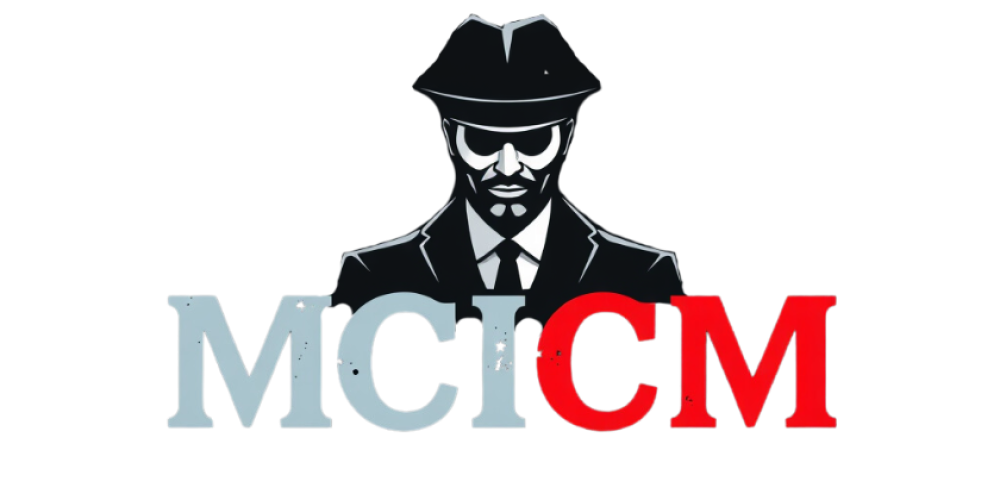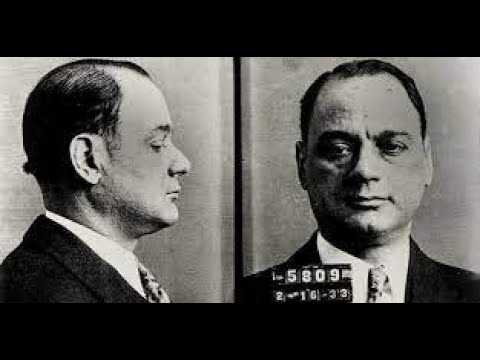Before John Gotti and Carlo Gambino there was the original boss of that family: Vincent Mangano. Handpicked by Lucky Luciano to lead this group in 1931 when the mafia was reorganized into its modern structure.
Music by Scott Buckley.
John Gotti and the Gambino family might be the most well-known names in the American mafia.
That family was taken over by Carlo Gambino in 1957 when then boss Albert Anatasia was assasinated at a barbershop on Park Avenue in one of the most famous mob hits ever known.
But before these men, the family was led silently by boss Vincent Mangano.
He was appointed by Lucky Luciano when the modern mafia was founded in 1931 and ruled for twenty years.
Despite being one of the original bosses of the five families, almost nothing is known about his long reign. Which is the way he would have wanted it
Vincent Mangano was born in Sicily on March 28, 1888.
It’s unclear of when he exactly immigrated to the United States, but by the time the Castellammarese War broke out in 1930, he was a high-ranking member of the Mineo Family with his power concentrated at the Brooklyn waterfront.
He controlled the Long shoreman through Anthony Anatasio, president of their union and fellow member of the crime family.
Goods could not be loaded or unloaded from ships without under the table payments.
Mangano’s life is only known to us from fragments, and the biggest piece comes from former Bonanno family boss and founder, Joseph Bonnano’s memoirs.
Mangano is first mentioned during the Castellammarese War.
During the war, Mangano’s boss Frank Scalise was a Maranazano loyalist and he was forced into retirement when Lucky Luciano became the ultimate victor with Mangano selected to replace him.
The heads of the newly formed five families became permanent members of “the commission”, a board of directors for the organized crime world created to prevent a large underworld war from ever happening again.
Mangano was made the informal chairman of their meetings.
In the 1930s, the commission had its first test when several members wanted to eliminate special prosecutor Thomas Dewey while others were opposed.
Bonanno recalled Mangano’s position to be “if we lose our heads then we’ll wind up burning down our foundation”.
The hit on Dewey never happened.
Bonanno also recalled that Mangano was the mafia member who coined the term, la cosa nostra, which means our thing.
Mangano was one of the oldest members of the commission and he was in his sixties by the time his reign ended.
He was more old fashioned than his younger counterparts and felt that American Culture was corrupting the traditional values of Cosa Nostra.
While some newspapers gave Mangano the nickname of “the executioner”, his longtime underboss Albert Anatasia was known as “the Lord High Executioner”.
Anastasia ran what was called ‘Murder Inc’, the enforcement arm of the mob and this got him close to other bosses in other families, something Mangano viewed as subversive.
Anatasia was fourteen years younger than his boss.
By the time the 1950s came, Mangano was already seeing himself as an old man according to Bonanno.
This was perceived as weakness by Anatasia and the two men started having more and more conflicts with some accounts that they almost got into physical fights.
The final straw for Mangano that his underboss was going rogue was when Antasia became close with Luciano Family boss Frank Costello and the two men started doing business together behind Mangano’s back.
According to Joe Bonanno:
“Fear is when you think ahead about what may happen to you. Fear is anticipating the future and assuming the worst possible scenario. Mangano and Anatasia were at a stage where they feared one another. Each man feared the other would act first; each wanted to be the first to act.”
On April 19, 1951; Anatasia acted first.
The body of Vincent Mangano’s brother Philip was discovered in a Brooklyn marsh with three bullet holes in his head.
He was the consligere of the family.
Vincent Mangano disappeared that same day as well but his body was never discovered.
Ten years later he was declared legally dead.
Anatasia, backed by Frank Costello, became the new boss of his family.
Anatasia would never confirm or deny the role he played in Mangano’s demise.
But Don Vincenzo’s death broke the rule that bosses cannot be murdered without commission approval.
However his elimination was the result of politics and so the commission looked the other way as everyone found a way that they could benefit with him no longer there.
With Mangano out of the way and Anatasia in his place, support on the commission now leaned toward supporting Frank Costello as head of the Luciano Family instead of the growing power force of Vito Genovese.
But with Anatasia’s death six years later, that balance of power would later be reversed and eventually the Luciano Family became better known today as the Genovese Family.
source

